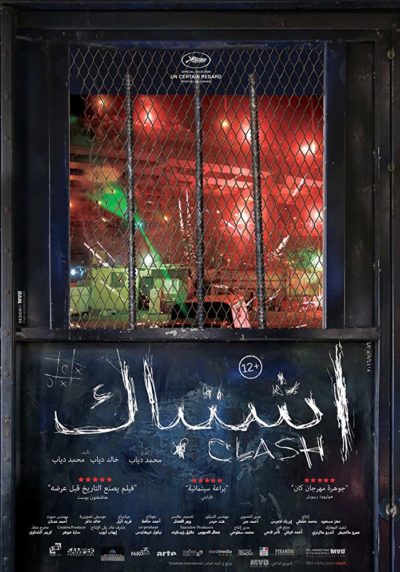
The setting for Clash is Egypt in 2013. Two years after the revolution, widespread protests have broken out since the election of Muslim President Morsi, who has just been deposed by the military. With people of both sides demonstrating in a violent manner, the emotions are running high and the atmosphere combustible.
Amongst the confusion, a police van is filled with arrested protesters from both sides as well as two journalists. With the prisons full, they are kept in those confines for an entire day and into the evening. The film unfolds entirely in the van as the inmates argue, fight and at times find common ground. Once I had become accustomed to that concept, I found that it really worked. Additionally shots of the violence outside, seen through the van windows and doors, really adds to the tensions and feeling of dread.
Despite there being some evidence of co-operation between the different sides, and even with some of the police guarding them, there aren’t any dramatic resolutions or feel good moments. Instead, I got a much better understanding of the dire situation in the country and was particularly interested to see the divisions within each of the groups. I got a real sense of the tensions and panic that the people imprisoned were feeling without feeling that I was being preached to.
Director Mohamed Diab and cinematographer Ahmed Gabr using edgy hand held cameras to great effect, really conveying the claustrophobic setting. Amongst the mostly male cast, it is two women who stand out – Nelly Karim as the kind but determined Nagwa, the most complex character in the movie, and Mai El Ghaity as the young devout Muslim girl Aisha.
There was a small lull about three quarters of the way into the film, and a sub-plot about one lad secretly dating another’s sister wasn’t necessary, so it could have done with a 10 minute trimming. But the terrifying ending was beautifully shot and very well-judged.
Rating: 9 out of 10